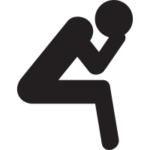.
..TRAUMA AND POST-TRAUMATIC STRESS DISORDER (PTSD)
Trauma Therapy in Toronto
WHAT IS TRAUMA?
We tend to think of trauma as something that leaves visible scars, such as a car accident, sexual abuse or war. It isn’t about the event, but rather it’s about how one responds to the event. One experiences trauma when the body is overwhelmed by the event. It can cause mental or emotional stress and bodily distress. Whether you witnessed an event that shook your belief about how safe the world is or experienced developmental neglect or abuse, you may struggle to feel at ease in your daily life.
WHAT CAUSES TRAUMA AND PTSD
There are 2 types of traumas. The first is big T trauma, which usually involves a threat to your well-being or the well-being of another. It is what we typically associate with trauma: a natural disaster, abuse, a car accident or childhood abuse. The other type is small t trauma. This kind occurs more frequently and isn’t always thought of as traumatizing. Here are some examples: teasing, bullying, parental neglect, impairment in parental empathy, ongoing bickering between parents, a sudden breakup, discovering an affair, suddenly losing a job, being left out, being publicly embarrassed, or being betrayed. An essential ingredient to both small t and big T trauma is the experience of helplessness.
SYMPTOMS OF TRAUMA AND PTSD
The symptoms can range from more obvious and paralyzing symptoms to more subtle ones. Whether you’ve experienced physical or psychological trauma, here is a list of signs and symptoms you may:
- Feeling panicked in an unfamiliar or unexpected situation
- Feeling stressed or fearful when reminded of the event
- Frequently feeling hopeless or guilty
- Reliving the event, such as in the form of a flashback

- Feeling anxious or experiencing panic attacks
- Feeling irritated or having moments of rage
- Intense emotions and rapidly changing emotions
- Being hypervigilant and easily startled, or feeling like you’re walking on eggshells
- Having nightmares of the event or other fears
- Feeling depressed
- Avoiding situations, places or people associated with the event
- Feeling detached, emotionally numb or dissociating (checking out)
- Difficulty concentrating
- Suffering from insomnia or nightmares
- Trouble sleeping
- Experience substance abuse or other addictions
- Difficulty trusting others
- Experiencing issues with intimacy
- Feeling constant guilt or shame
It’s important to note that often the symptoms don’t surface immediately but can appear days, months or even years later.
HAS TALK THERAPY NOT WORKED FOR YOU IN THE PAST?
Despite having tried talk therapy in the past, you might still feel easily triggered, live in fear or feel like your not living the life you want. I tailor my approach to each of my clients. In addition to various talk therapy modalities, I also integrate sensorimotor, a body-centered approach that treats the somatic symptoms of unresolved trauma, while supporting the nervous system.
Looking for A Trauma Therapist in Toronto?
If you’re looking to work through your symptoms, or if you have any questions, contact me today to schedule your free consultation in Toronto so we can explore what working together would look like.